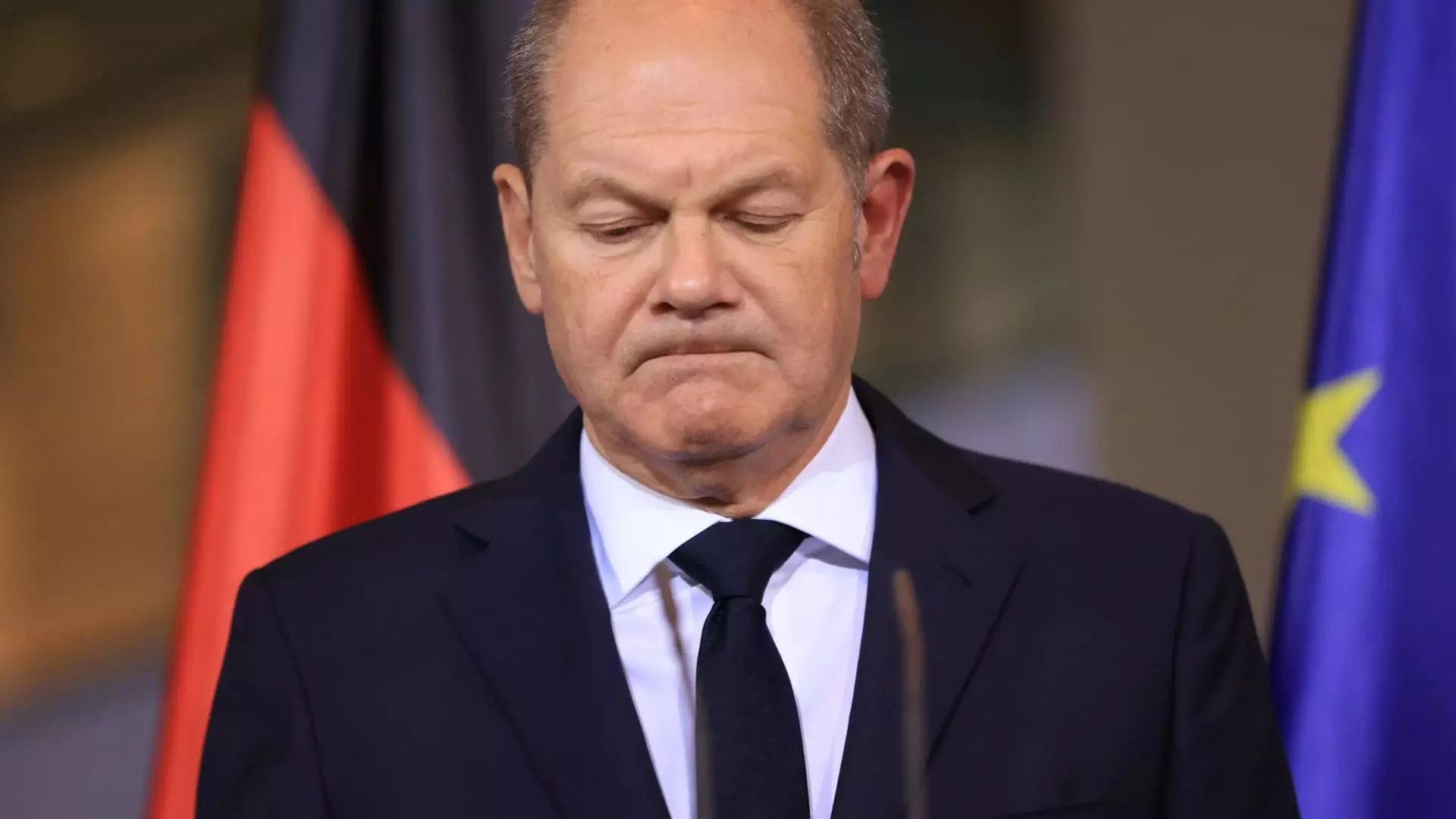As the world gears up to adapt to the outcomes of the recent U.S. elections, Germany stands on a precipice, uncertain about its economic future. Despite narrowly avoiding a technical recession in the third quarter of 2023, with a modest growth of 0.2% after a 0.3% contraction, indicators suggest a country grappling with stagnation. The German economy ministry’s recent projection has shifted from anticipated growth to expectations of contraction for the year, illuminating a stark reality faced by one of Europe’s economic powerhouses. Key composite Purchasing Managers’ Index (PMI) data, a vital barometer of economic health, showcased a slight uptick in October, yet still languished in contraction territory.
The ascendance of Donald Trump to the presidency could significantly exacerbate Germany’s economic woes. Moritz Schularick, president of the Kiel Institute for the World Economy, articulated the situation poignantly, suggesting that Trump’s election could signify one of the most challenging economic epochs in post-war German history. The ramifications extend beyond Germany’s internal struggles; new foreign trade dynamics and security policy challenges complicate an already precarious landscape. Trump’s previous insinuations about imposing tariffs on imports pose a direct threat to an economy heavily reliant on exports. With the U.S. having overtaken China as Germany’s primary trading partner in the first half of the year, accounting for nearly 9.9% of German exports, the implications of dwindling trade relations cannot be overstated.
Trump’s economic philosophy has consistently underscored protectionism, with proposed blanket tariffs ranging from 10% to 20% on imports, a stance that could translate to significant setbacks for German exporters. The Ifo Institute’s evaluation underscores the gravity of this situation, projecting a staggering €33 billion in damages should Trump’s tariff threats be realized. The automotive and chemical sectors, known as mainstays of the German economy, are particularly vulnerable, hinting at a potentially disastrous fallout should these tariffs come to fruition.
Despite the looming threat, the German government must act decisively. Experts like Lisandra Flach from the Ifo Center for International Economics emphasize the necessity for Germany and the broader European Union (EU) to adopt proactive strategies. Strengthening the internal services market and establishing credible retaliatory measures against U.S. tariffs should be at the forefront of Germany’s agenda. As the landscape shifts under the influence of a more isolationist U.S. policy, European solidarity will be key in mitigating potential losses.
The political landscape within Germany is equally tumultuous, further complicating the country’s economic outlook. Recent events saw Chancellor Olaf Scholz dismissing Finance Minister Christian Lindner, signaling instability within the ruling coalition. This disarray could complicate Germany’s ability to formulate a cohesive response to external pressures. Despite such conflicts, Scholz and former minister Lindner both extended congratulations to Trump, reflecting a reluctant acknowledgment of the new political reality. Lindner’s remarks prior to his dismissal hint at the need for diplomatic engagement with the new U.S. administration, suggesting that maintaining a constructive dialogue regarding trade relations is essential for both sides’ economic interests.
The intersection of domestic and international challenges facing the German economy necessitates a robust and strategic response. With Trump at the helm of the U.S., Europe must brace for a potentially drawn-out period marked by heightened trade tensions. As Lindner suggested before his ouster, engaging with the new administration will be crucial in safeguarding Germany’s economic interests. Alternatively, outright retaliation may be inevitable if protectionist policies are implemented.
The economic forecast for Germany in the wake of Trump’s election appears grim. As the country faces a confluence of internal political strife and external economic pressures, the need for strategic foresight and collective action within the EU is paramount. Germany’s resilience will be tested as it navigates this uncertain terrain, underscoring the importance of unity and adaptability in the face of evolving global dynamics.


Leave a Reply